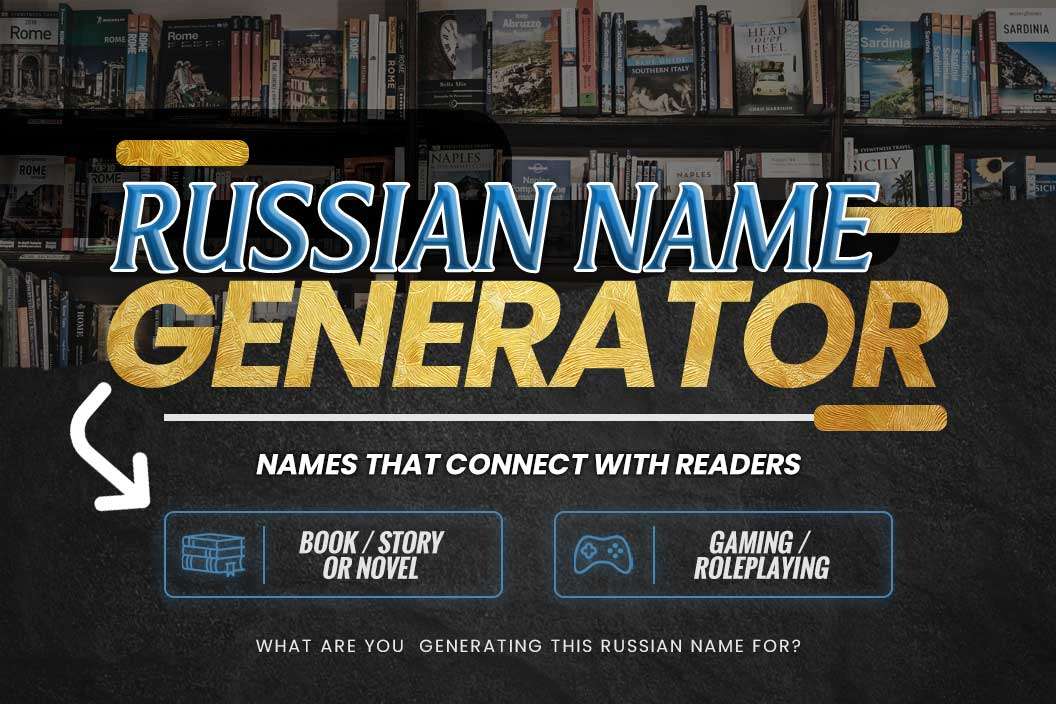
Echoes of the Motherland: Unveiling the Russian Name Generator
Russian Name Generator
The allure of Russian names lies in their rich history, diverse origins, and deep cultural significance. These names echo the vast expanse of the largest country in the world, spanning multiple time zones and encompassing a wide array of cultures and languages. From the icy tundras of Siberia to the historic streets of Moscow and St. Petersburg, Russian names carry the weight of centuries-old traditions, literary greatness, and revolutionary history. The Russian Name Generator is a tool designed to help you navigate the complexity and beauty of Russian naming conventions, whether you’re a writer seeking authentic character names, a new parent looking for a meaningful name for your child, or simply curious about your own name’s origins.
Understanding Russian Names
Before diving into the generator, it’s essential to understand the structure of Russian names, which typically consist of three parts: the given name, the patronymic, and the surname.
1. Given Names
Russian given names, like those in many other cultures, are chosen by parents and bestowed upon their children. These names often have historical or religious significance, with many derived from saints’ names or traditional Slavic names. Examples include Anastasia (Анастасия), Dmitry (Дмитрий), and Olga (Ольга).
2. Patronymics
A unique aspect of Russian names is the patronymic, a name derived from the father’s first name with the addition of “-ovich” or “-evich” for a son and “-ovna” or “-evna” for a daughter. This means if a father is named Ivan, his son’s patronymic might be Ivanovich, and his daughter’s might be Ivanovna.
3. Surnames
Russian surnames often end in “-ov”, “-ev”, or “-in” for males and “-ova”, “-eva”, or “-ina” for females, reflecting the gender of the individual. Surnames are usually inherited from the father and can be based on occupations, characteristics, or geographical locations.
How the Russian Name Generator Works
The Russian Name Generator is programmed to reflect the intricacies and cultural depth of Russian names. It takes into account historical contexts, regional variations, and linguistic nuances to produce authentic and diverse names. Here’s a step-by-step guide on how it operates:
1. Selecting the Gender
The generator first asks for the gender of the name you’re seeking, as this affects both the given name and the suffix of the surname.
2. Choosing a Given Name
Based on the selected gender, the generator sifts through a vast database of Russian given names, considering their popularity, origins, and meanings. You can often choose between a traditional name, a more modern name, or a rare and unique name.
3. Generating a Patronymic
The generator then creates a patronymic based on a randomly selected male given name, ensuring it matches the gender of the full name being generated.
4. Formulating a Surname
Finally, the generator selects a surname that complements the given name and patronymic, taking into account regional variations and historical influences that might affect the name’s prefix and suffix.
Examples of Generated Names
To illustrate the generator’s capabilities, here are some examples of names it might produce, complete with given names, patronymics, and surnames:
- For Males:
- Alexei Dmitrievich Sokolov (Алексей Дмитриевич Соколов)
- Nikolai Ivanovich Petrov (Николай Иванович Петров)
- Mikhail Alexandrovich Kuznetsov (Михаил Александрович Кузнецов)
- For Females:
- Ekaterina Vladimirovna Smirnova (Екатерина Владимировна Смирнова)
- Svetlana Nikolayevna Ivanova (Светлана Николаевна Иванова)
- Irina Sergeyevna Popova (Ирина Сергеевна Попова)
The Cultural Significance of Russian Names
Russian names are not just identifiers; they are imbued with historical significance, familial connections, and personal stories. They reflect the country’s rich literary tradition, with names from Russian literature often becoming popular. Names like Natasha (from “War and Peace”) and Yuri (from “Doctor Zhivago”) have transcended their literary origins to become a part of the cultural fabric.
Moreover, the choice of names can reflect the parents’ aspirations, beliefs, and the influence of popular figures in history, such as poets, cosmonauts, and revolutionaries. The Russian Name Generator taps into this deep well of cultural, historical, and linguistic resources to offer names that are not only.



